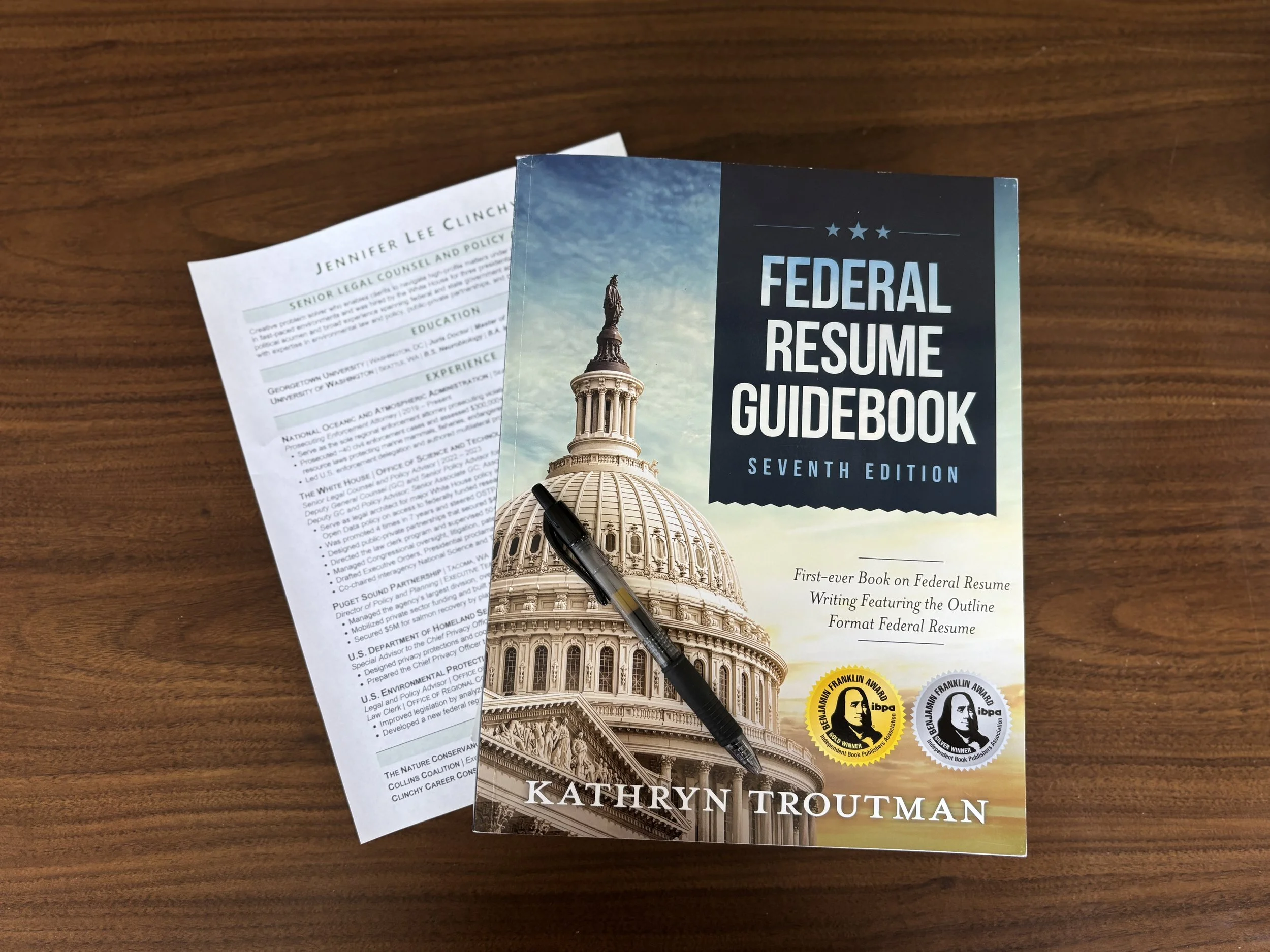Why I became a professional resume writer
A colleague recently asked me how I got into resume writing. It started with my first government job, when I was working part-time while attending graduate school. A senior attorney took me under her wing. One piece of sage advice she told me was to have my resume on my desktop, and to make a habit of updating it regularly. “Your resume should always be ready to send if anyone asks you for it,” she said.
Her guidance stuck with me. By treating my resume as a living document that I tended to as devotedly as a bonsai tree, I was able to update it with specificity while the work was fresh in my mind. I made it a practice to learn about resume writing, and incorporated that information into my resume. I tweaked and polished and rewrote and restructured my resume many, many times. During my last job search, I estimate that I edited my resume 100 times, tailoring it to different positions and refining every word. It’s always a work in progress.
For most of my 17 years in the federal government, I’ve reviewed resumes and cover letters as a hiring manager or member of a hiring panel. That exposure showed me firsthand what made certain resumes stand out. To this day, I still remember one of the most compelling cover letters I’ve ever read. It was written by a law student applying for a law clerk position at the White House. She articulated with such authenticity what the role meant to her and why she was drawn to public service. (We hired her.) I also recall the incredibly impressive accomplishments that one Special Assistant to the President managed to pack into his one-page resume, without resorting to size 9 font or slim margins.
Those examples set a high bar for what I knew a resume and cover letter could achieve. As colleagues learned about my ongoing study of resume writing best practices, they started asking me for feedback on their own resumes. One friend told me, “You’re pretty good at this resume thing. Have you ever thought about writing resumes professionally?” I hadn’t. When the pandemic began in 2020 and my work travel stopped, however, I figured it was time to give it a try. I posted my credentials on a couple online freelancing platforms, and soon found myself in business as a resume writer.
A few years later, I carved out the time from writing resumes weekly to take the certification exam administered by the Professional Association of Resume Writers. Thanks in part to insightful guidance from John Suarez in helping me prepare, I passed the exam on my first try. I later took Robin Reshwan’s training on LinkedIn profile optimization and became certified as a LinkedIn Digital Career Strategist as well. Since then, I’ve continued to grow as a resume writer by completing professional training and researching market trends every week. The new insights and practices I gain help my clients navigate today’s ever-changing landscape.
It makes my day each time I receive a note about how the resume or cover letter I wrote for a client helped them land the job they’d aspired to for years. I’ve worked with an amazingly diverse range of inspiring professionals—from a food product scientist who invented one of the world’s best-selling potato chips, to tech entrepreneurs, chart-topping musical artists, film producers, and public service professionals from virtually every sector.
These are very cool people who have done very cool things. It’s unlikely I would have met them if we hadn’t crossed paths through resume writing. Equipping these professionals with the tools to share their talents with the world is some of the most gratifying work I’ve done. That, for me, is the magic and wonder of being a resume writer.

